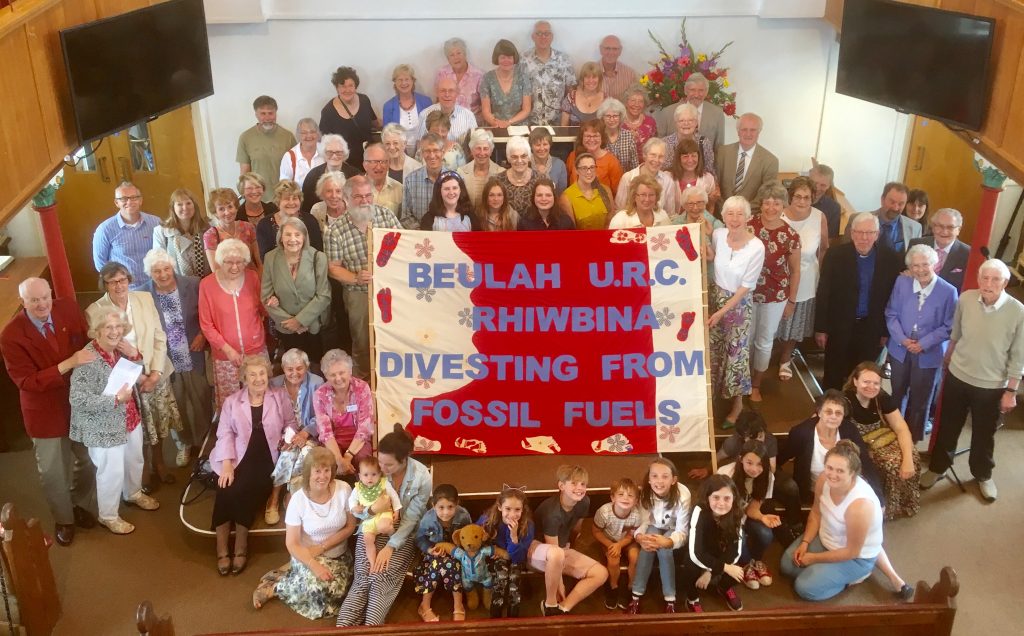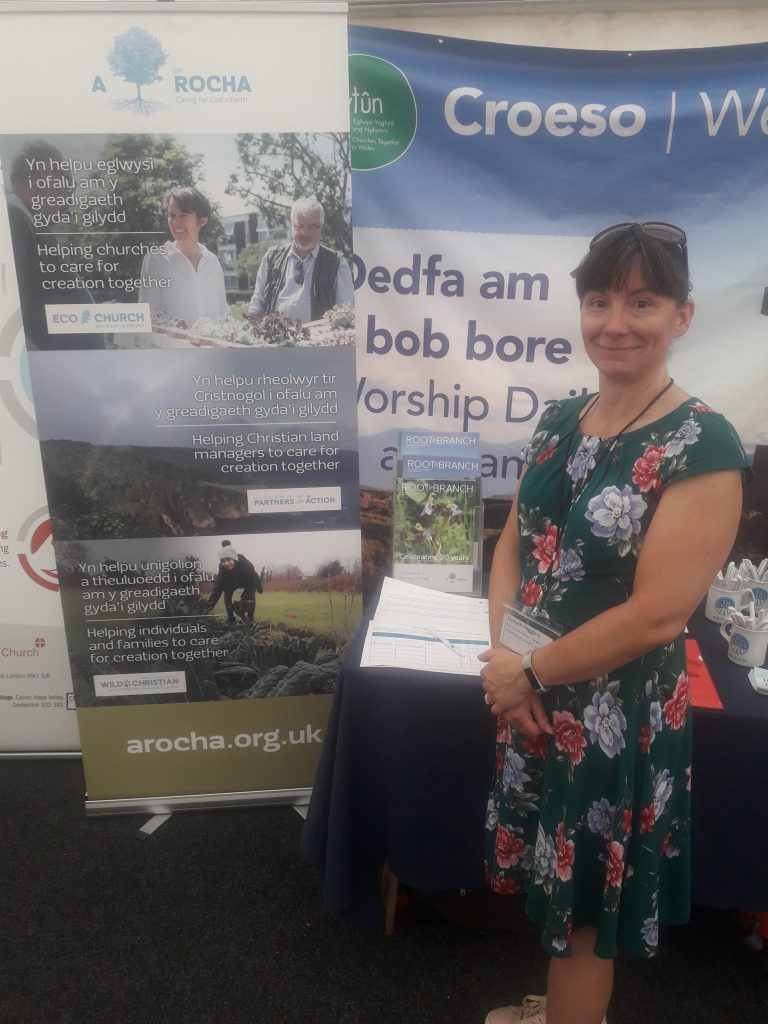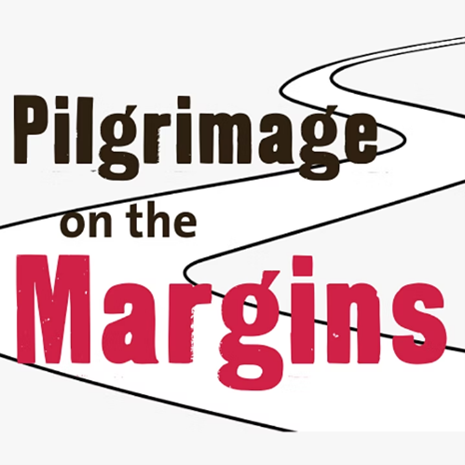EASTER HOLIDAYS UNDER THREAT?
The Welsh Government’s Education Minister, Jeremy Miles MS, has announced that he wants to continue consulting about changing the pattern of school holidays in Wales – despite a report by a research company commissioned by the Government showing that the majority of people they spoke to, children and adults, inside and outside the education system, are reasonably satisfied with the current system.
Mr Miles says he believes that considering in detail distributing school holidays more evenly throughout the year, and reducing somewhat the long summer holiday, can enable us to support curriculum planning and delivery, tackle disadvantage and educational inequalities, and support learner and staff well-being.

Cytûn and a number of other religious organizations contributed to the research, and our evidence is mentioned in the report. Concerns amongst the churches revolve mainly around the proposal to fix the spring holidays independently of the date of the Christian Easter, in order to harmonise the length of the school terms (although the Senedd does not have the ability to abolish the bank holidays on Good Friday and Easter Monday, which would continue even if they fell during term time). Some schools would welcome being able to teach about Easter during the season itself, in the same way as is done with other religious holy days. On the other hand, churches would lose the ability to present the Easter story through holiday clubs, and Christian families would lose the opportunity to attend the many Christian festivals held in Wales and across Britain the week before and after Easter Sunday. There is no intention to change the school holidays in England.
A formal consultation is expected during the 2022-23 academic year, and Cytûn will welcome our members’ views on this in order to respond formally on your behalf.
CHANGES TO MARRIAGE LAW?

The Law Commission has published a substantial report recommending changes to the legal system for marriages in England and Wales.
Recommendations include:
- Recognising the wedding officiant, instead of the current registration of appropriate buildings.
- These wedding officiants could be representatives of religious denominations or communities, or individuals trained and approved by the General Register Office (GRO).
- Church of England and Church in Wales priests would be recognized as wedding officiants by virtue of their office; other denominations would decide their own arrangements.
- The officiant would have to be present at the wedding, but all or part of the ceremony could be led by one or more others. This would allow the inclusion of elements from more than one religion in the same service, and the inclusion of religious elements (such as a hymn or prayer) in a civil wedding ceremony – something that is not currently possible.
- Weddings could be held by a religious or independent officiant in any place where the ceremony could be held in a dignified way, indoors or outdoors, or on a ship.
- If the UK Government allows, non-religious faith organisations (such as Humanists) could approve wedding officiants in the same way as religious denominations.
It will be up to the Westminster Government to consider how – if at all – to implement these recommendations. Cytûn will keep an eye on the situation as it develops.
WELSH GOVERNMENT’S LEGISLATIVE PROGRAMME
On July 5, the First Minister of Wales, Mark Drakeford MS, announced the Welsh Government’s legislative programme for the 2022-23 Senedd year. In the statement and in answering questions, he also gave a foretaste of the laws due in subsequent years.
The main bills to be introduced in 2022-23 will focus on environmental issues:
- A bill to ban or restrict the sale of certain types of single-use plastics in Wales. This will also give the Welsh Government the opportunity to challenge the UK Internal Market Act 2020, as that could authorise the continued sale of these plastics in Wales as long as they are legally available in England.
- A Clean Air Bill
- An Agriculture Bill to implement from 2025 a new scheme to pay farmers primarily according to their environmental work. Outline proposals for the Sustainable Farming Scheme were launched at the Royal Welsh Showground in Llanelwedd in July.
- A bill on the safety of coal tips, based on the Law Commission’s report, Regulating Coal Tip Safety in Wales.
- An Infrastructure Consent Bill to simplify the process of granting planning and regulatory permission for significant infrastructure projects, such as wind farms, transport schemes, etc.
During 2023-24 the following additional Bills are expected to be introduced:
- A bill to reform the Senedd by increasing the number of members from 60 to 96 and introducing a new voting system based on party lists, allowing voters to vote for one party only, without being able to choose between individual candidates. This will be based on the Senedd committee report on the matter.
- A bill to give more power to local authorities to regulate buses.
- A Local Government Finance Bill, to reform (but not abolish) council tax and to give local authorities the power to introduce local tourism taxes.
- Another bill to reform local Non-Domestic Rates.
- A bill to introduce a new system of environmental regulation following the UK’s departure from the European Union.
The Senedd will also debate the secondary legislation needed to implement laws that have already been passed, and whether to consent to Westminster bills that touch on devolved matters.
BILLS BEING CONSIDERED IN WESTMINSTER
When publishing this Bulletin, there is some uncertainty about the progress of some of the bills that have recently been introduced to Westminster due to the change of Prime Minister, and therefore Government, which is expected on September 5. Among the bills that Cytûn is monitoring are:
- Bill of Rights Bill, which will repeal the Human Rights Act 1998, which is at the heart of Wales’ devolved settlement, and replace it with a new Bill based on the European Convention on Human Rights, but with fewer opportunities for individuals to bring proceedings in court if they believe their rights have been violated. A number of Cytûn member churches are concerned about this bill and Cytûn is monitoring developments alongside human rights organisations.
- Online Safety Bill, which introduces restrictions on children’s access to inappropriate material on the internet, but also – in the opinion of some – restricts freedom of expression on the web.
- Public Order Bill, which aims to give the police powers to restrict protests that block traffic or cause noise or disruption to members of the public.
- The Northern Ireland Protocol Bill, already passed by the House of Commons but not yet by the House of Lords, which would give UK ministers broad powers to change not only the Northern Ireland Protocol in the UK’s withdrawal exit agreement from the European Union, but also any legislation – including devolved legislation – that touches on the issues in that protocol.
Time will tell whether a change in the UK government will alter the consideration or content of some of these bills.
Over 5,000 Eco-Churches in England and Wales are turning green
In July 2022, six months on from the global COP26 climate conference in Glasgow, Christian conservation charity and Cytûn member A Rocha UK announced that 5,152 churches of various denominations in England and Wales have joined their EcoChurch award scheme. This signals an intent to engage in deliberate, ongoing action to care for nature and the climate on church premises and in the local community. 36% of those churches have achieved a bronze, silver or gold award.

Beulah United Reformed Church in Cardiff was the first church in Wales to divest from fossil fuels. Here, creation care has regularly been at the heart of teaching and worship. Their Canolfan garden gained a Green Flag Award in 2020 and children from the church grow vegetables and herbs. This silver-awarded EcoChurch also engages its MPs and Senedd Members in its services and events. They are measuring their carbon footprints (using Climate Stewards’ 360 Carbon tool) and encourage members to switch to green energy suppliers.

Barry Uniting Church (URC/Methodist) celebrated the opening of their new building on Barry Waterfront in July with a coveted Silver Eco-Church Award, and are now preparing to go for the gold award. The environment and ecology is at the heart of the building, which has solar panels and an electric charging station. Before building started, slow worms were painstakingly moved from the building site to the neighbouring church-owned garden area. There are bird boxes installed for swifts, starlings, sparrows and house martins, and a wildlife corridor between the building and neighbouring shops. A wildflower turf was established at the front of the church and the existing pond, which is full of life including newts and frogs, was extended. There is also a little allotment where church members plant a number fruit and vegetables. The building also houses Lana’s Community café which provides work opportunities and confidence building for young adults with additional needs.
Eco Church, now in its seventh year, is helping to bring about a step-change in Christian action on the environment. It is an ecumenical scheme that helps churches see the connection between their faith and the environment, and take practical action in response. It considers how the environment is addressed within worship and teaching, buildings, land, community and global engagement, and lifestyle. But it is more than an award scheme – it is a learning community of churches all wanting to play their part in responding to climate change and biodiversity loss.

Delyth Higgins is the Eco Church officer for Wales – pictured left with her stall in the Cytûn tent at this year’s Royal Welsh Show. She can be contacted at delyth.higgins@arocha.org
Now that Eco Church has reached the significant milestone of over 5,000 registered churches, A Rocha UK’s goal is to reach 10,000 churches in England and Wales in the next 5 years.
GREAT BIG GREEN WEEK
Great Big Green Week will take place 24th Sept – 2nd Oct and Climate Cymru – of which Cytûn is a member – is supporting hundreds of events around Wales. We would like as many of you to take part in this celebratory event as possible and if you don’t have a plan right now, you can find plenty of inspiration in this A-Z of ideas.
You will also find bilingual resources here and if you’re looking for things to share on social media, check out the bilingual social media graphics, suggested text and downloadable film. Once you’ve decided what to do, take a look at this guidance for tips about organising.
Once you’ve got your date in the diary, drop Climate Cymru a quick line to let them know what you’re up to so that they can help connect events in your area. They can also answer questions and provide you with the support you need to promote your event.
And don’t forget to add your event to the Great Big Green Week website.
FUNDING AVAILABLE FOR SUPPORTING YOUR LOCAL NATURE
The Welsh Government’s Resilient Communities Programme has £2m of grant funding available to help individuals and organisations increase community participation with nature to help build resilient communities. This could be of benefit to Eco Churches and those engaged in Great Big Green Week or similar schemes.
Key information:
- £2m competitive grant available over 2 years. Delivery up to January 2024.
- Minimum eligible amount £10k (over 1 to 2 years).
- Maximum amount £125k if delivered in one Financial Yearor £250k in two Financial Years
- To apply for Funding, external partners will need to request an application form number via the Resilient Communities Grants Website to access the online application form.
- Application deadline 19th September 2022.
- Open to any applicant, and applicants may apply across multiple places.
- Collaborative / joint applications will be looked upon favourably.
- Must address the activities in scope, such as reconnecting people with nature and their local environment to improve ‘green behaviours’; promoting health and wellbeing; creating opportunities for accessing nature – see the website above for the full list.
- Applications must demonstrate involvement and/or benefits at community level.
All queries about the grant and application process should be directed to: grantiau.strategol@cyfoethnaturiolcymru.gov.uk
A MERTHYR PILGRIMAGE

Church Action on Poverty – a body in association with Cytûn’s sister organisation Churches Together in Britain and Ireland – is re-imagining what pilgrimage means in 2022. Through the Pilgrimage on the Margins series they will be making pilgrimages to and with forgotten communities or on the fringes economically.
On Wednesday 7 September an event will be held at Hope Church, Merthyr Tydfil (featured on the front page of the Easter 2022 Policy Bulletin) where you can spend time with fellow pilgrims listening, reflecting and sharing dreams, hopes and aspirations for ourselves, our communities and wider society.
Come and listen to and amplify the truths revealed by people in the community sharing their vision of the kind of future they want to see for themselves and the neighbourhood, and standing in solidarity with them in speaking truth to power about the wider changes that are needed to help bring this about. You can register for free on Eventbrite.
Catching the Vision for Disability Inclusion

Revd Jonathan Edwards, disability adviser and former General Secretary of Cytûn member the Baptist Union of Great Britain, shared his insights on how to encourage church leaders to embrace disability inclusion in an online event in May 2022 for ‘Roofbreakers’ or church disability inclusion champions.

Jonathan’s crucial tips are available to view on this video of his talk, hosted by Christian disability charity and Cytûn member Through the Roof: https://www.youtube.com/watch?v=nbvmx59oZaE
Jonathan’s top tips included:
- Personal insight and experience essential – many church leaders have no personal experience of disability. Anything we can do to help church leaders to connect with disabled people and their stories is important.
- Encouragement is really important. Let’s celebrate when disability inclusion goes well in our churches – rather than criticising.
- Giving practical support is important too. Having a Roofbreaker or disability champion in the congregation can be crucial here, and the resources that are available from Through the Roof will help a lot.
- Prayer is the key! Jonathan emphasised the need to pray about this issue and to listen to God: “If you want your church leader to be more excited about disability inclusion, then start praying today.”
Through the Roof trains and equips churches and other organisations to be inclusive of people with any disability. It publishes resource material, runs short term overseas missions, distributes refurbished wheelchairs in developing countries and runs accessible holidays, among other programmes. Find out how Through the Roof can help your church leaders ‘catch the vision’ at: https://www.throughtheroof.org/forchurches/roofbreakers/ or by contacting the Outreach Coordinator for Wales, Katie Mobbs – katie@throughtheroof.org
Related news…
Senedd Research has recently produced a sobering summary of recent reports by disability charities about the ‘seismic’ effect of the cost of living crisis on disabled people, who are disproportionately affected by rises in energy and other basic costs.
Registering a local church as a charity
In 2021, The Charities (Exception from Registration) (Amendment) Regulations 2021 extended until 31 March 2031 the period for which places of worship and religious charities of many (but not all) Christian denominations are excepted from having to register with the Charity Commission, unless their annual income exceeds £100,000.
While this extension was welcomed by many places of worship and denominations, for some it can create difficulties, as not all funding bodies recognise the description ‘excepted charities’ in their application process. The Charity Commission has confirmed to Cytûn that if an excepted church with an income of less that £100,000 has issues attracting funding, or even attracting a preferential bank deal, because they are not registered, we are happy to register them if they advise us of this. If they just let us know that they are having issue without a registered number, we are happy to consider a registration application.
Enquiries should be made to Mike James: registrationapplications@charitycommission.gov.uk. It is important that local churches discuss any intention to apply with their denominational authorities also, as denominational arrangements vary.
In due course, a voluntary programme of registration for excepted charities will be launched by the Charity Commission, and Cytûn will inform members of this when it becomes available.
POLICY BRIEFS
Welcoming refugees from Ukraine
Welsh Government is looking for more businesses, charities and organisations to help with welcoming refugees by offering large-scale accommodation, transport, translation or other facilities. A number of Christian churches have already made offers, but more would be welcome.
Individuals who can offer accommodation to an individual or family can register here. Cytûn member Housing Justice Cymru runs a hosting scheme for destitute migrants from all parts of the world, and is currently recruiting new staff to extend this scheme to refugees from Ukraine.
Youth work survey still open
The KESS project, based at the University of South Wales, is still appealing for all organisations that provide voluntary youth work services for young people in Wales to complete a short survey which captures the nature of the organisation and the support provided to young people. Cytûn has been involved in this project, and urges all faith-based youth work providers to spend a few minutes completing the survey here.
Police, Crime, Sentencing and Courts Act 2022 and positions of trust
Section 47 of the Police, Crime, Sentencing and Courts Act 2022 came into effect on 28 June. It amends the Sexual Offences Act 2003 by inserting a new section 22A into the 2003 Act, thereby expanding the meaning of “position of trust” to include the situation in which:
‘(a) A coaches, teaches, trains, supervises or instructs B, on a regular basis, in a sport or a religion, and
(b) A knows that they coach, teach, train, supervise or instruct B, on a regular basis, in that sport or religion, where “religion” includes “a religion which involves belief in more than one god, and a religion which does not involve belief in a god”.’ [emphasis added]
[With thanks to CLAS, the Churches’ Legislation Advisory Service]
Relationships and Sexuality Education: information for parents/carers
From September 2022, as the new Curriculum for Wales is introduced in primary and some secondary schools, parents/carers will no longer have the right to withdraw their children from Relationships and Sexuality Education (RSE) in school. Welsh Government has therefore updated its RSE information leaflet for parents and produced a case study video which shows the teaching of RSE in primary school. These and a host of other resources can be accessed publicly on the Hwb RSE playlist.
Members appointed to new Citizen Voice Body for Health and Social Care
Welsh Government has announced the appointment of seven members to the new Citizen Voice Body, which replaces Community Health Councils in Wales from 2023, and will also give citizens a voice in social care. The body is chaired by Professor Medwin Hughes, Vice-Chancellor of the University of Wales Trinity St Davids and chair of the Representative Body of the Church in Wales.
CONTACTING CYTÛN’S POLICY OFFICER
Parch./Revd Gethin Rhys – Swyddog Polisi/Policy Officer
Cytûn – Eglwysi ynghyd yng Nghymru/Churches together in Wales
Registered office: Room 3.3, Hastings House, Fitzalan Court, Cardiff CF24 0BL
Mobile: 07889 858062
E-mail: gethin@cytun.cymru www.cytun.co.uk @CytunNew
Hapus i gyfathrebu yn Gymraeg ac yn Saesneg.
Happy to communicate in Welsh and English
Cytûn is a registered company in England and Wales | Number: 05853982 | Registered name: “Cytûn: Eglwysi Ynghyd yng Nghymru/Churches Together in Wales Limited” | Cytûn is a registered charity | Number: 1117071
Publication date: July 26 2022. The next Bulletin will be published on September 29 2022.
